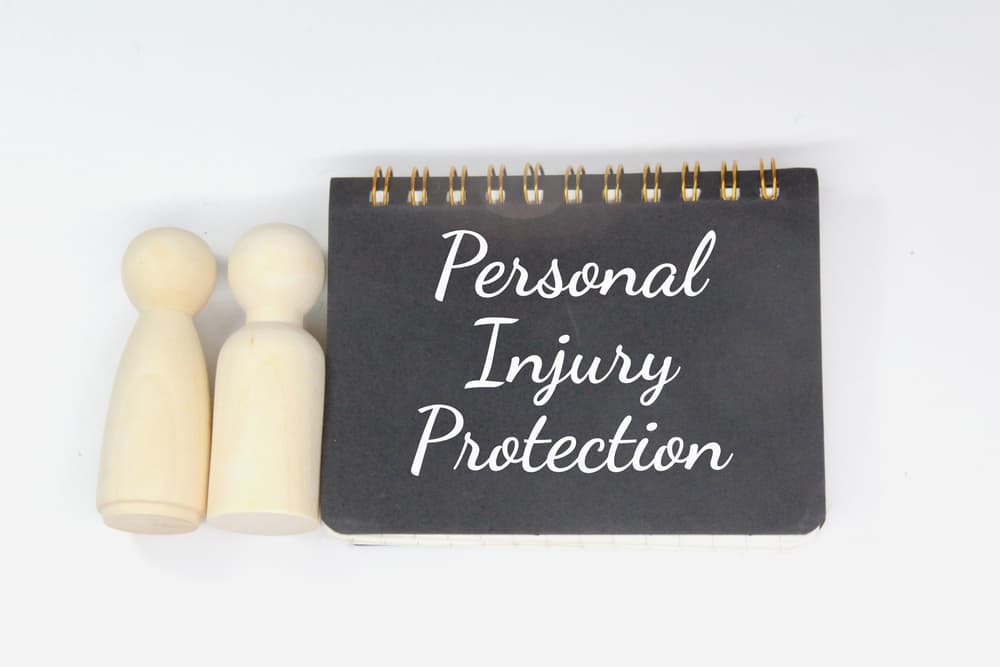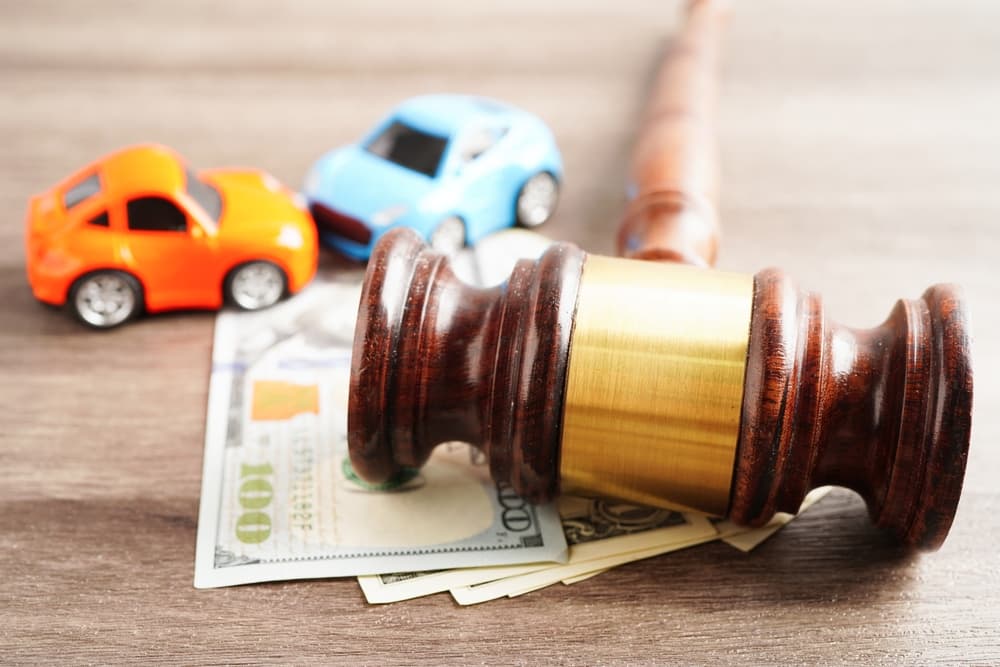After a motor vehicle accident, every driver should consult a Car Accident Lawyer in St. Petersburg to understand the 14-Day Rule. This rule can significantly affect your ability to receive the compensation you deserve after a car accident.
Understanding the Basics of Personal Injury Protection (PIP) in Florida
Florida drivers should understand the basics of Personal Injury Protection (PIP) insurance, all drivers in Florida must purchase. PIP coverage provides immediate medical and income loss benefits to individuals injured in car accidents, regardless of who was at fault.
PIP insurance ensures that accident victims receive prompt medical treatment without waiting for the legal process to determine fault or liability. However, you will need a lawyer to explain your rights and the limitations of this coverage.
Benefits Under PIP Coverage
Under PIP coverage in Florida, accident victims qualify for certain benefits, regardless of fault. These benefits include:
- Medical Expenses: PIP coverage will pay for 80 percent of reasonable and necessary medical expenses related to the car accident up to the policy limits. This includes treatment costs, doctor visits, medications, and diagnostic tests.
- Lost Income: If your injuries prevent you from working, PIP coverage will reimburse you for a portion of your lost income, up to 60 percent of your average weekly income, subject to policy limits.
- Death Benefits: In the unfortunate event of a fatal car accident, PIP coverage provides death benefits to the surviving family members to help cover funeral expenses and other related costs.
PIP coverage has certain limitations and restrictions. For example, it only covers up to $10,000 in medical expenses and lost income and does not provide compensation for pain and suffering or other non-economic damages. This is where the 14-Day Rule comes into play.
The 14-Day Rule and its Implications
The 14-Day Rule in Florida states that accident victims must seek medical treatment within 14 days of the accident to qualify for full PIP benefits. Failure to seek medical treatment within this time can result in a denial of your PIP claim, leaving you without the financial support you need to recover from your injuries.
This rule prevents fraudulent claims and ensures accident victims receive timely medical treatment. However, it can also create challenges for individuals who may not immediately realize the extent of their injuries or delay seeking medical attention for various reasons.
Even if you don't experience immediate severe pain or visible injuries after a car accident, you may still have underlying injuries that can manifest later. Internal injuries, whiplash, and soft tissue injuries can take time to develop symptoms. Still, they can significantly harm your health and well-being in the long run.
Why You Should Seek Immediate Medical Evaluation After a Florida Car Accident
In the midst of the chaos and confusion of a car accident, you may overlook any potential injuries or dismiss them as minor. However, seek immediate medical evaluation after a car accident in Florida for several reasons.
First, some injuries may not present immediate symptoms. Adrenaline and shock can mask pain and other symptoms, leading you to believe you are fine. However, underlying injuries may be more severe than you initially realize. By seeking medical evaluation, healthcare professionals can assess your condition, identify hidden injuries, and provide necessary treatment.
Secondly, seeking medical evaluation promptly after a car accident can strengthen potential legal claims. In Florida, the law operates under the no-fault system, which means that each driver's insurance policy covers their own medical expenses regardless of who is at fault.
Remember that to file a PIP claim, you must seek treatment within 14 days of sustaining your injury. If you delay seeking medical attention, insurance companies may argue that your injuries were not caused by the accident or that they are not as severe as you claim.
By getting evaluated right away, you can establish a clear link between the accident and your injuries, increasing your chances of receiving fair compensation.
Lastly, early medical evaluation allows for early intervention and treatment. Some injuries, such as whiplash or concussion, may not show immediate symptoms but can worsen over time if left untreated. Prompt evaluation can help you get the necessary treatment and prevent long-term complications.
Seeking immediate medical evaluation after a car accident in Florida is essential for your physical well-being and any potential legal claims. No matter how minor the accident may seem, it is always better to err on the side of caution and see a healthcare professional.
Don't hesitate to seek the necessary care and support for your valuable health and legal rights.
The Advantages of Florida's PIP System

Florida's Personal Injury Protection (PIP) system offers several benefits to drivers in the state. One of the key advantages of Florida's PIP system is the quick and efficient access to medical benefits.
After an accident, drivers can seek medical treatment immediately without worrying about delays caused by determining fault or waiting for insurance claims to be processed. This allows individuals to receive timely medical care, crucial for ensuring a full and speedy recovery.
Another advantage of the PIP system is the coverage it provides for lost income. Suppose the injured individual is unable to work due to their injuries.
In that case, they can receive compensation for the income they would have earned during that time. This financial support can help alleviate some of the stress and financial burden that often accompanies injuries sustained in car accidents.
Additionally, the PIP system limits the need for litigation. Since PIP covers medical expenses and lost income, individuals are less likely to pursue legal action against the at-fault driver for additional compensation.
This reduces the burden on the court system and simplifies the process for individuals involved in accidents, allowing them to focus on their recovery instead of lengthy legal battles.
Understanding these advantages can help individuals make informed decisions when selecting their insurance coverage, ensuring they have the necessary financial protection in the event of an accident.
Common Types of Car Accidents in Florida
Car accidents can occur in various ways. Understanding how your car accident occurred can shed light on who might be liable.
Here are some of the most common types of car accidents in Florida:
- Rear-End Collisions: Rear-end collisions occur when one vehicle crashes into the back of another vehicle. These accidents often happen due to tailgating, distracted driving, or sudden stops.
- Intersection Accidents: Drivers who fail to obey traffic signals or stop signs make intersections dangerous. Intersection accidents can range from minor fender-benders to severe collisions involving multiple vehicles.
- T-bone Accidents: Also known as side-impact collisions, T-bone accidents occur when one vehicle crashes into the side of another vehicle, forming a "T" shape. These accidents commonly happen at intersections or when one vehicle fails to yield the right of way.
- Single-Vehicle Accidents: Single-vehicle accidents involve only one vehicle and can occur due to various factors such as driver error, road conditions, or mechanical failures. These accidents often result in the vehicle colliding with a stationary object or overturning.
- Head-On Collisions: Head-on collisions happen when two vehicles collide front-end to front-end. These accidents are often severe and can result in catastrophic injuries or fatalities.
Causes of Florida Car Accidents
Car accidents can happen due to numerous factors, and understanding the causes is vital in determining liability and pursuing legal action if necessary.
Some common causes of car accidents in Florida include:
- Distracted Driving: Any activity that diverts a driver's attention from the road can lead to accidents. This includes texting, talking on the phone, eating, or adjusting the radio.
- Speeding: Driving above the designated speed limit significantly increases the risk of accidents. High speeds reduce reaction time and make it more challenging to control the vehicle.
- Impaired Driving: Driving under the influence of alcohol or drugs is a leading cause of car accidents. Impaired drivers have reduced judgment, slowed reaction times, and decreased coordination.
- Reckless Driving: Reckless driving behaviors such as aggressive tailgating, improper lane changes, or running red lights can lead to devastating accidents.
- Poor Weather Conditions: Rain, fog, or other adverse weather conditions can make the roads slippery and reduce visibility. These conditions require drivers to adjust their driving accordingly to prevent accidents.
Common Car Accident Injuries
Car accidents can result in life-altering disabilities, including:
- Whiplash: Whiplash is a soft tissue injury that commonly occurs in rear-end collisions. It happens when the neck rapidly snaps back and forth, causing strain to the neck muscles and ligaments. Symptoms may include neck pain, stiffness, headaches, and dizziness.
- Broken Bones: A car accident can fracture bones. Common bone fractures include broken ribs, arms, legs, and wrists. Depending on the severity, fractures may require casts, surgeries, or other forms of medical intervention.
- Spinal Cord Injuries (SCI): Spinal cord injuries can result in long-term physical disabilities or paralysis. These injuries often occur in high-impact accidents and can significantly degrade a person's quality of life.
- Traumatic Brain Injuries (TBI): A car accident can cause a traumatic brain injury, ranging from a mild concussion to severe brain damage. TBIs can lead to cognitive impairments, memory loss, difficulties with motor skills, and emotional changes.
- Internal Injuries: The force and impact of a car accident can cause internal injuries such as internal bleeding, organ damage, or punctured organs. These injuries may not always immediately appear and may require urgent medical attention.
If you sustained any injuries in a car accident, seek immediate medical attention. Additionally, a car accident attorney can protect your rights and explore legal options for compensation.
Why You Need a Car Accident Attorney

A car accident attorney has the knowledge and skills to help you navigate the legal process and ensure compliance with the 14-Day Rule. They can gather the necessary documentation, including medical records and bills, to support your PIP claim. Additionally, an attorney can negotiate with insurance companies on your behalf and, if necessary, file a lawsuit to seek additional compensation for your injuries and damages.
By consulting with a car accident attorney as soon as possible after a car accident, you can protect your rights and receive the medical treatment and compensation you need to recover and move forward with your life.
Recently Injured in a Car Accident? Contact an Experienced Florida Car Accident Lawyer for Help
If you've suffered an injury in a car accident in Florida, don't let the complexities of the 14-Day Rule and PIP coverage overwhelm you.
Contact an experienced Florida personal injury lawyer to schedule a free consultation to discuss your case. A lawyer understands the urgency of your situation and is here to guide you through the legal process, ensuring that you receive the maximum compensation for your injuries and damages.
Don't delay seeking legal representation – your rights and future well-being are at stake. Reach out for help today and let an attorney fight for your deserved justice.